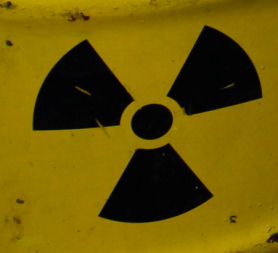WikiLeaks: how will Iran react?
A former British ambassador tells Channel 4 News that the west would be better to accept a nuclear Iran than bomb it. Sir Richard Dalton says Tehran will seek to claim the moral high ground.
Sir Richard Dalton was the UK’s ambassador to Iran between 2003 and 2006. Secret documents released by WikiLeaks show a number of countries in the Middle East have called for the US to bomb Tehran’s nuclear programme. Sir Richard has told Channel 4 News that diplomacy, not military action, is the only way to deal with Iran.
Sir Richard told Channel 4 News that Iran would seek the high moral ground, claiming that these telegrams show that they are the victim of an aggressive political campaign, and possibly a military campaign by their enemies as they see them.
“They will seek to go over the heads of Arab governments to appeal to their strengths, as they see it, as an upholder of the causes which Arab citizens hold dear,” he said.
“In response to that the United States and its partners must hold steady to their objectives of achieving diplomatic, negotiated solutions to the many problems they have with Iran.”

No surprise
Sir Richard said that it had been suspected for some time that many countries with a border on the Persian Gulf with Iran wanted decisive action but he did not believe that this had swayed the United States and Israel.
“Everything still depends on what Iran intends to do and actually is doing,” he said.
“At present the best intelligence and the best analyses suggests that Iran is still some way from having a nuclear weapons capability.
If you have to accept a nuclear Iran it would be better to do so…rather than to bomb Iran. Sir Richard Dalton
“The prescription that the Gulf countries are recommending of early military action remains the wrong prescription as it always has.
“I hope the release of these telegrams, unfortunate though it is, will increase public debate about the options for confronting Iran’s nuclear programme and will yield conclusions that we should be more resolute in the diplomatic process.”
Israel’s concerns
Sir Richard said he could understand why Israel above all countries was most nervous about what Iran might do.
“The lessons for those of us who are partners of the United States and partners of the European Union is that the underlying political reasons for discontent and for tension must be addressed,” he added.
“We have to go beyond sanctions, beyond military strength to constructive, diplomatic solutions which will require flexibility rather than absolute rigidity on the side of those negotiating with Iran.
Iran: inside the Islamic state - special report
Monitoring Iran
“It has been obvious for some time that sanctions would not succeed in compelling an Iranian change of heart.
“It has also been obvious that Iran attaches the first importance nationally to maintaining an enrichment capability so the best way of managing the risk that this represents is international monitoring and supervision.
“The answer to the riddle – do you accept a nuclear Iran or bomb Iran – is that if you have to accept a nuclear Iran it would be better to do so and to contain and deter the threat that represents rather than to bomb Iran.”
-
Latest news
-
Laughing Boy: New play tells the tragic tale of Connor Sparrowhawk5m

-
Sewage warning system allows some of worst test results to be left off rating system, analysis shows3m

-
Post Office inquiry: Former CEO didn’t like word “bugs” to refer to faulty IT system4m

-
Israeli soldier speaks out on war in Gaza12m

-
PM’s defence spending boost should be ‘celebrated’, says former Armed Forces Minister4m

-




